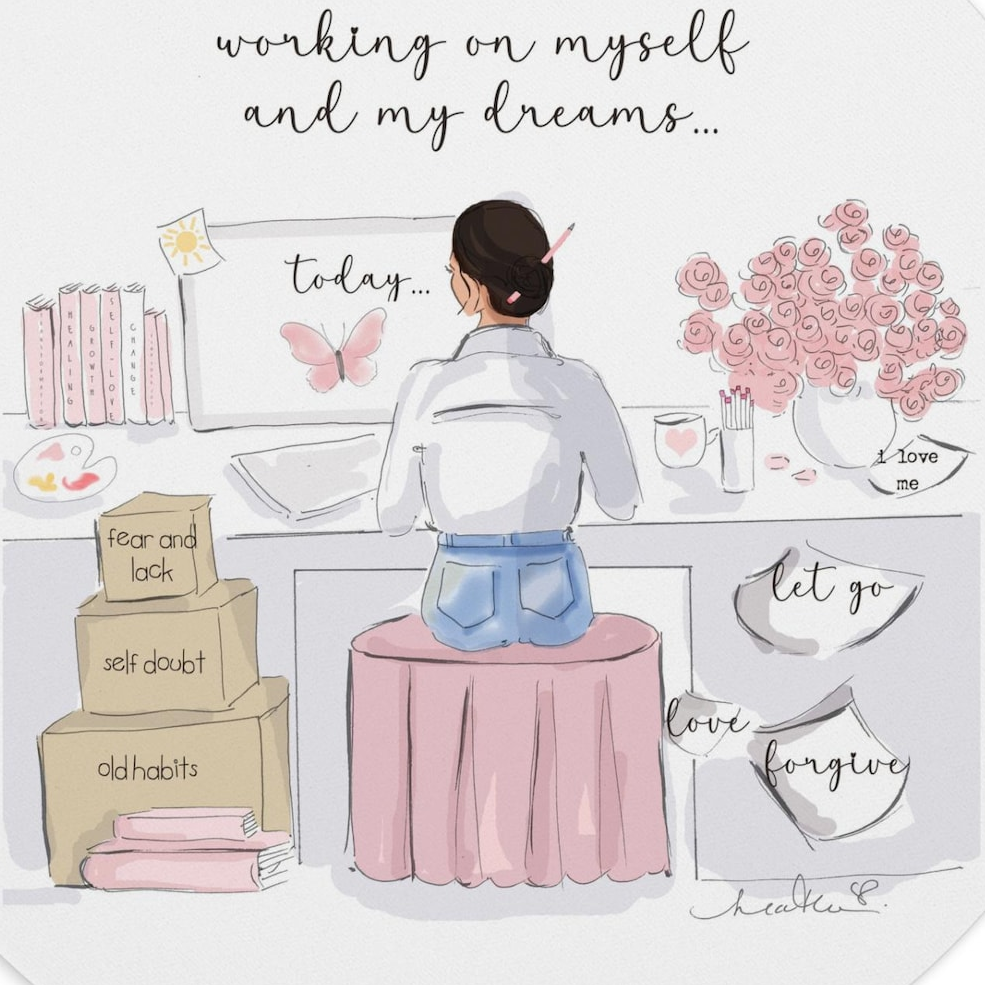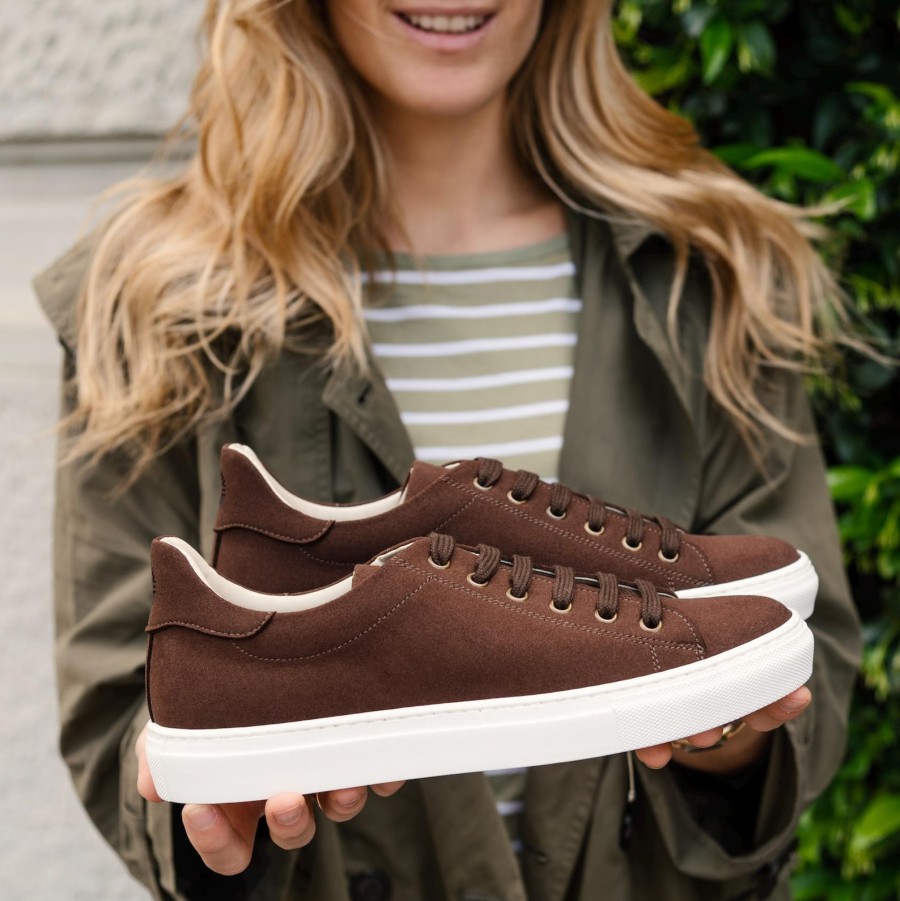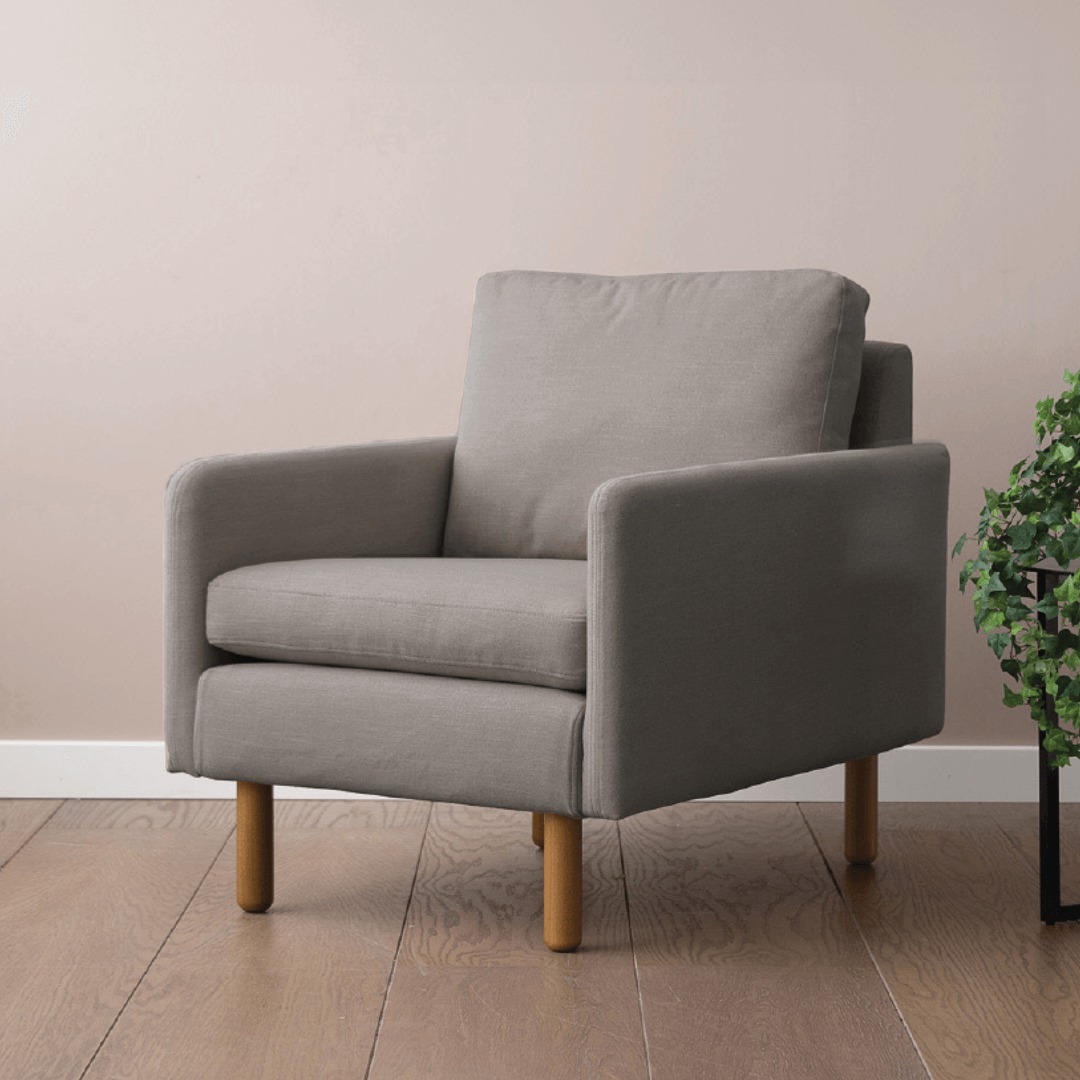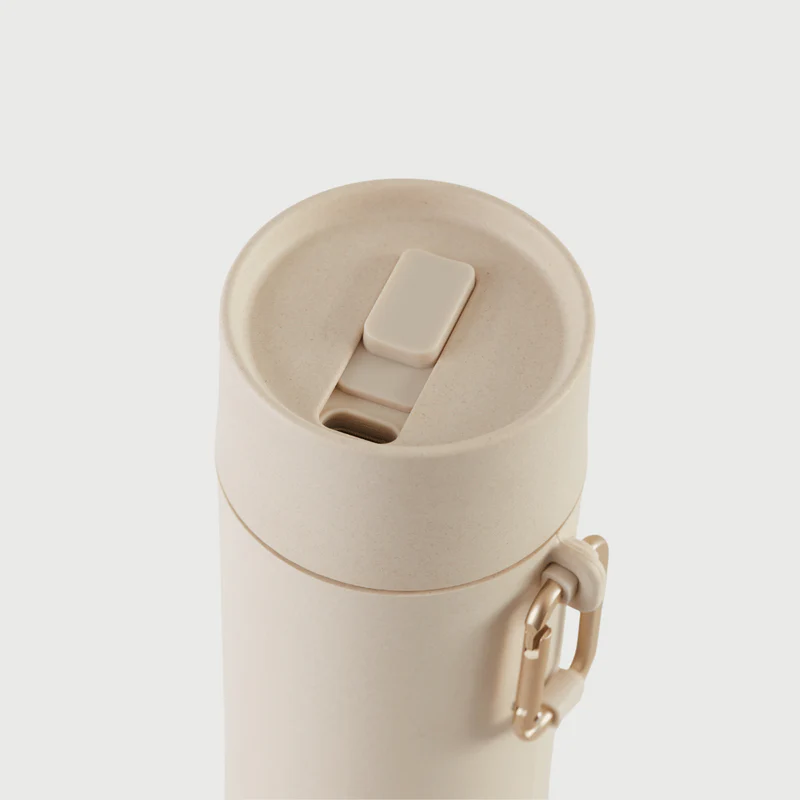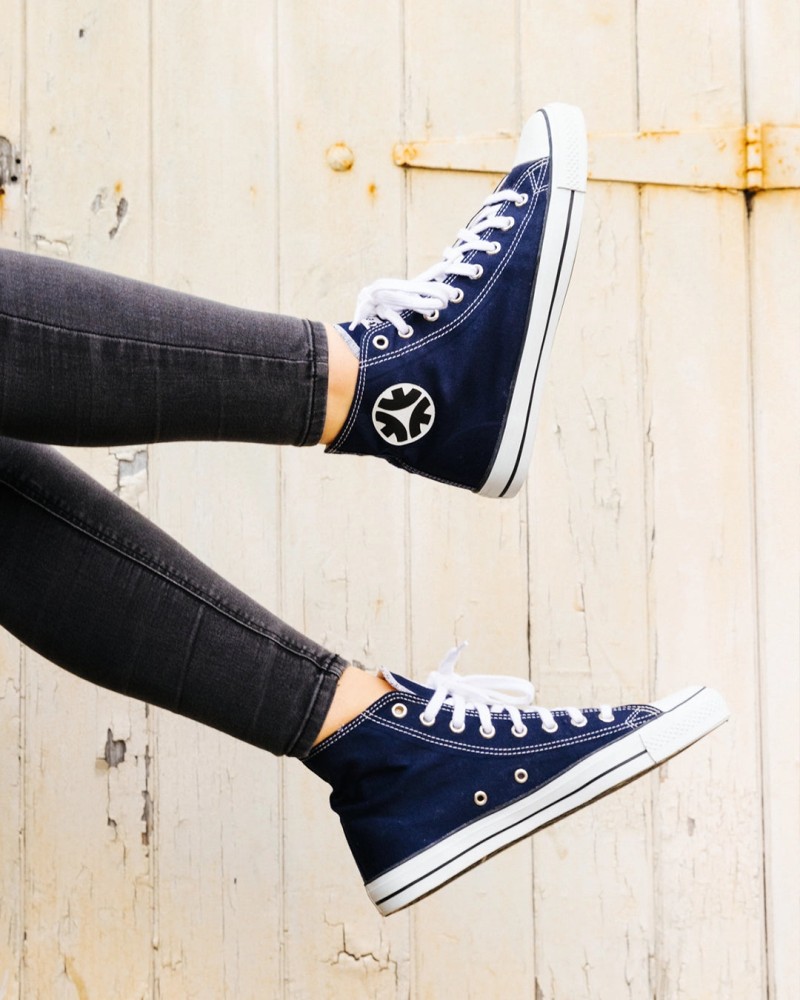The Best Brands of Zero Waste Feminine Care

Dame Period Cup offers 12 hours of protection, with quick cleaning and easy care, even away from home. It flexes with your body so is comfortable wear, and forms a secure seal.

It’s sold in two sizes, depending on age and childbirth history, and holds around three times more liquid than a tampon. The box includes the cup, plus a digital guide and a cotton storage bag.
This cup is self-sanitising so there is no need to boil between uses. Just rinse and wash with mild soap, dry and then store in the cotton bag.
To use, just wash your hand and relax your pelvic floor, the wet the cup with water. Press the sides together then fold in half (or one corner down) and insert while squatting. If placed well, you should not be able to feel it. Wash your hands before removing, and pinch the base to break the seal (do not pull from the stem alone).
Tips for Zero Waste Feminine Care Products
Just bin disposables, never flush down the loo
Do not use menstrual cups (or tampons) for at least 6 weeks after pregnancy or if at risk from toxic shock syndrome. These are made from medical grade silicone, and absorb menstrual fluid, one purchase should last years, they are easy to rinse and clean.
If using washable pads or period pants, launder in a microfibre filter (due to synthetic waterproof lining). Do not use fabric conditioner or bleach (reduces absorbency) nor tumble driers. For stains, use oxygen bleach.
One of the best remedies for period paid is simply a hot water bottle on your (clothed) tummy for 30 minutes, to relieve muscle spasms.
Plastic-Free Tampons and Pads
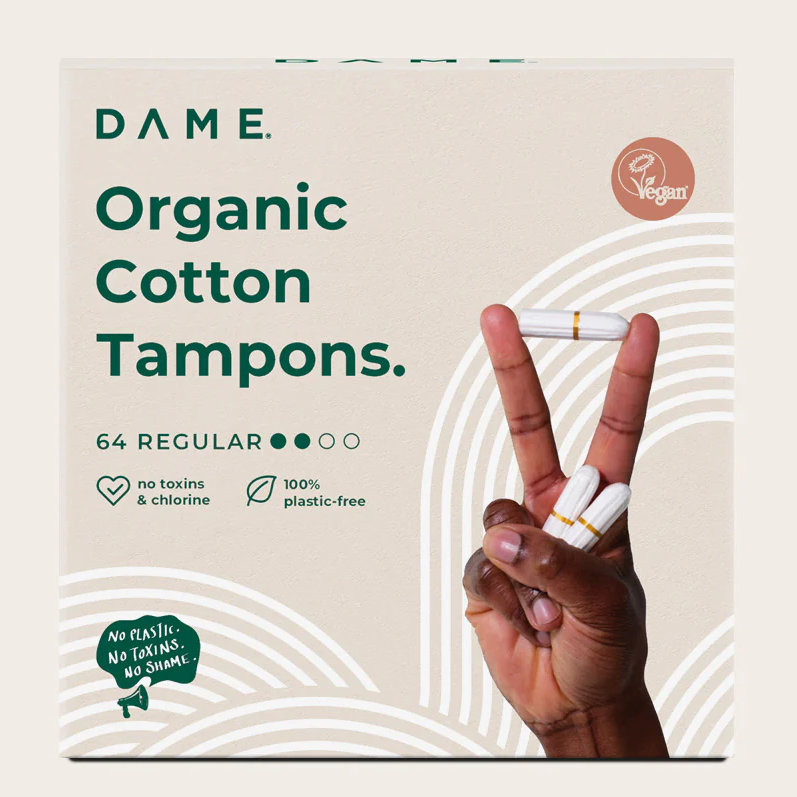
If you prefer disposables, choose organic cotton tampons (no chlorine or rayon, so less chance of toxic shock syndrome – the main risk being not changing items frequently enough) or towels/liners (which can also be used for light incontinence). These are also sold in plastic-free packaging, without dyes or scents.
A Reusable Tampon Applicator
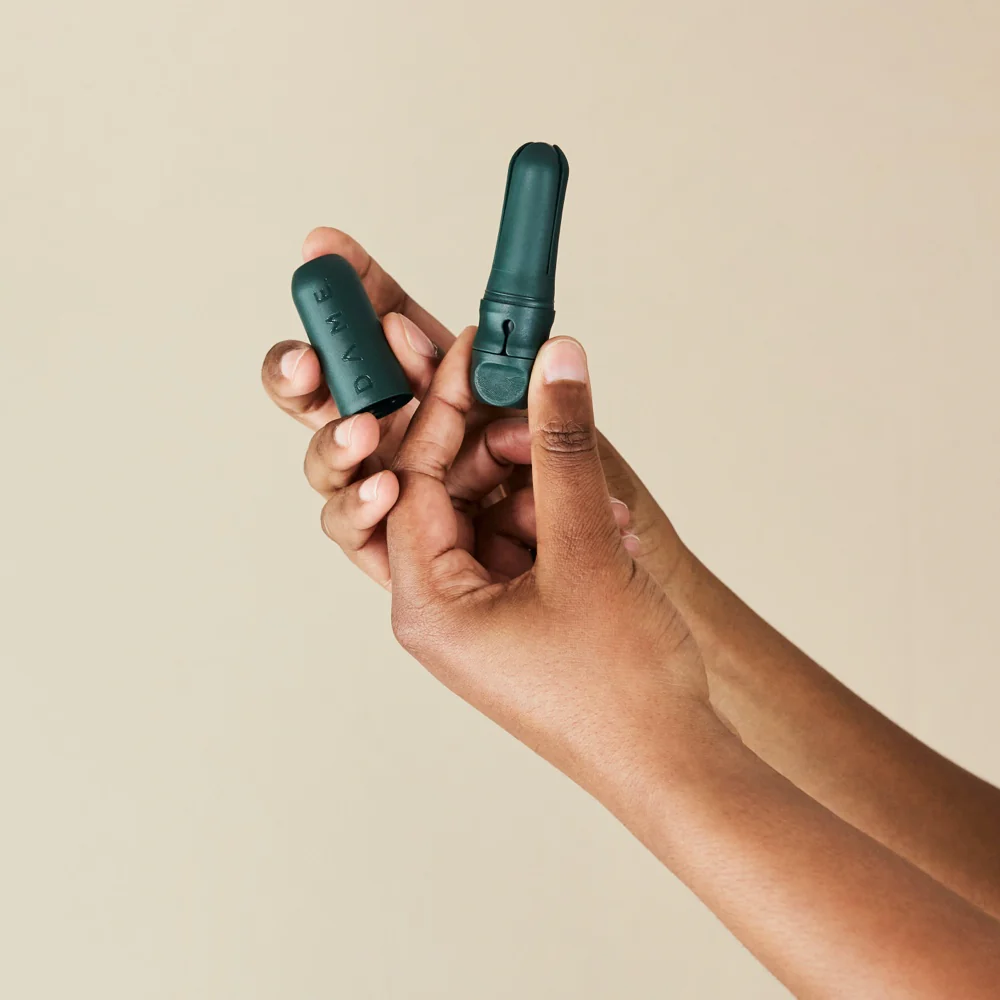
DAME reusable tampon applicator includes a cotton storage pouch and bathroom storage tin, and you can buy a starter kit that include organic cotton tampons. Just remove the lid, load a tampon, insert the plunger and push through the petals. Then rinse under running water, it works out cheaper than applicator tampons.
The company can also offer tampons for public bathrooms (for business, councils, schools etc) and gives back to period poverty charities.
MoonCup (an award-winning menstrual cup)

Mooncup (which makes menstrual cups) has recently merged with &Sisters (which makes organic towels and tampons) to create a wonderful new brand. Offering everything from beginner and standard menstrual cups (complete with ‘cleaning cups’) to organic disposables.
Tips for Zero Waste Feminine Care Products
Do not use menstrual cups (or tampons) for at least 6 weeks after pregnancy or if at risk from toxic shock syndrome. These are made from medical grade silicone, and absorb menstrual fluid, one purchase should last years, they are easy to rinse and clean.
If using washable pads or period pants, launder in a microfibre filter (due to synthetic waterproof lining). Do not use fabric conditioner or bleach (reduces absorbency) nor tumble driers. For stains, use oxygen bleach.
One of the best remedies for period paid is simply a hot water bottle on your (clothed) tummy for 30 minutes, to relieve muscle spasms.

You can even buy a Mooncup cleaning bundle, to save money.

This brand also offers sustainable plastic-free disposable towels and tampons, which are far better than the leading brands (just bin, never flush down the loo).
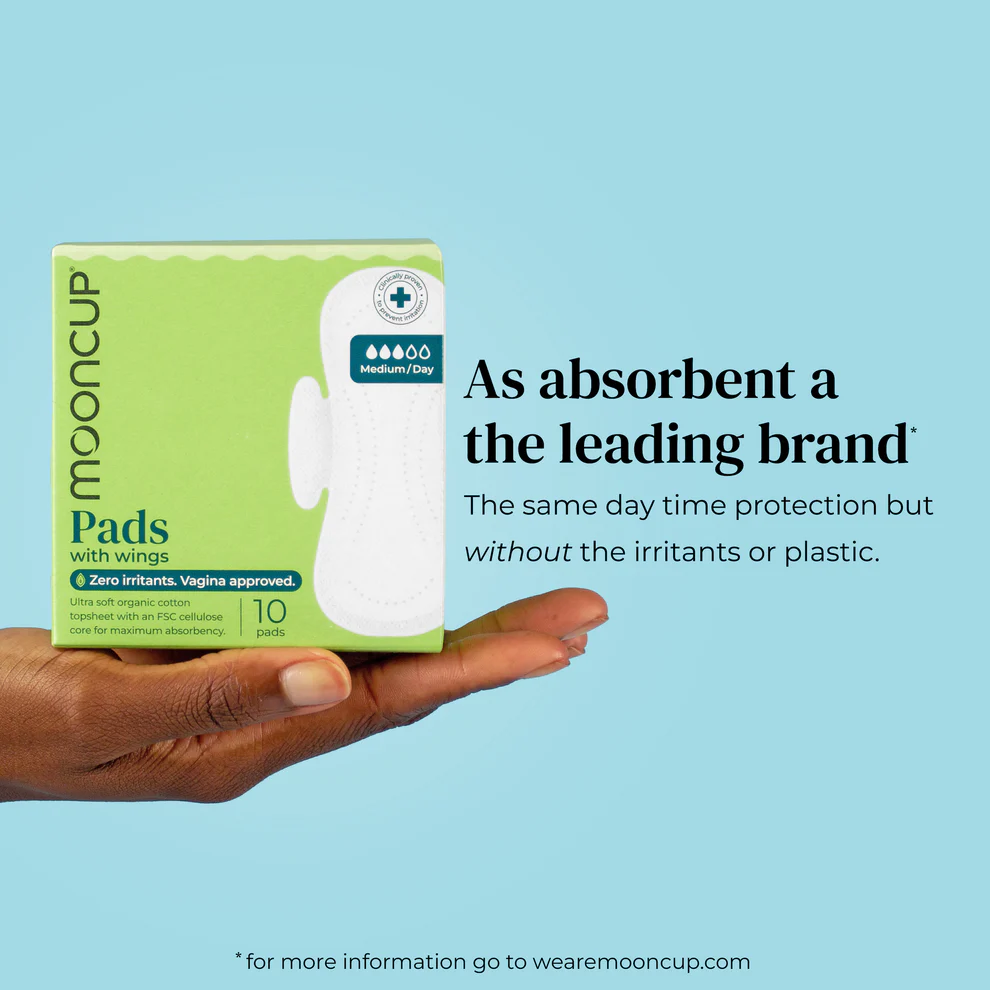
Mooncup for Businesses, Schools and Councils
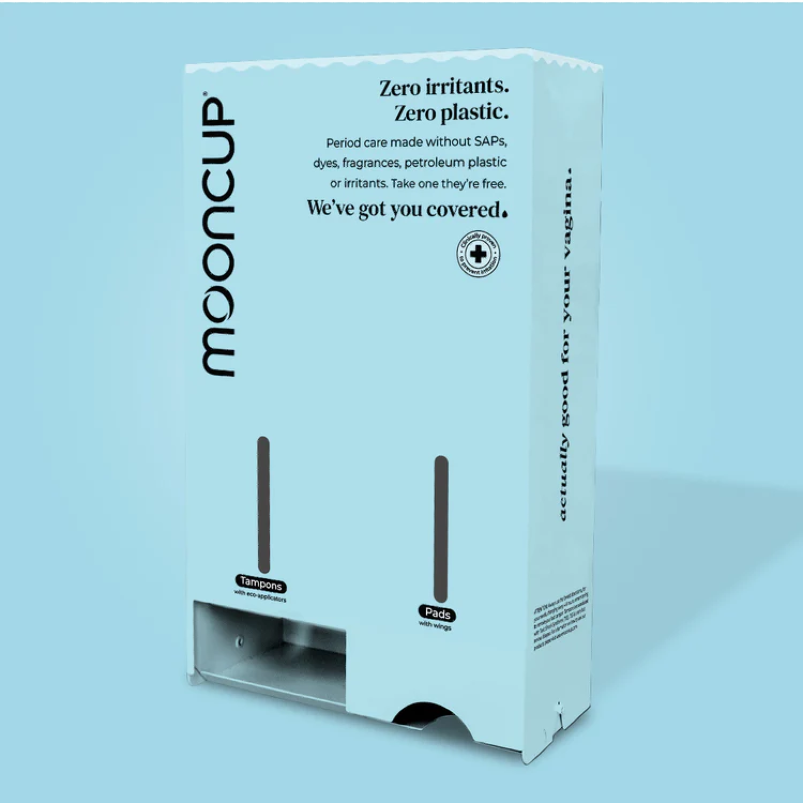
Mooncup for Business offers refillable dispensers, to offer the same quality plastic-free options for public areas (pubs, hotel and supermarket toilets, offices, schools, council buildings etc).
Grace & Green (ethical zero waste period care)
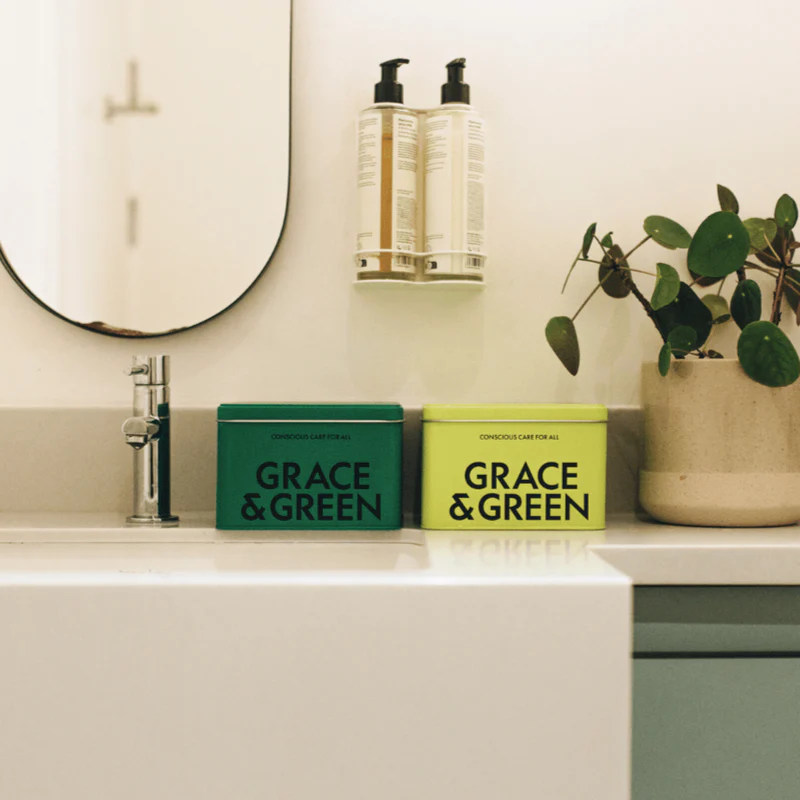
Grace & Green offers a nice range of organic cotton disposable pads, liners and tampons, along with reusable menstrual cups, all in sustainable packaging. But it goes beyond that, also able to supply attractive containers of sustainable feminine care for schools, offices and council buildings.
These are all organic and free from fragrance and chlorine bleach, in plastic-free packaging. These offer economic solutions for local people, to replace present plastic alternatives that could also be used for hotels, pubs and other public areas with ‘tampon machines.
Just bin disposables, never flush down the loo.
Tips for Zero Waste Feminine Care Products
Do not use menstrual cups (or tampons) for at least 6 weeks after pregnancy or if at risk from toxic shock syndrome. These are made from medical grade silicone, and absorb menstrual fluid, one purchase should last years, they are easy to rinse and clean.
If using washable pads or period pants, launder in a microfibre filter (due to synthetic waterproof lining). Do not use fabric conditioner or bleach (reduces absorbency) nor tumble driers. For stains, use oxygen bleach.
One of the best remedies for period paid is simply a hot water bottle on your (clothed) tummy for 30 minutes, to relieve muscle spasms.


Don’t Send Plastic Feminine Care to Africa

Some of the big plastic disposable feminine care companies, often urge us to ‘donate’ free feminine care products to girls and young women in Africa, so they don’t have to use leaves, and can spend more time in study and work. Sounds good?
Not so fast. This is actually one of the worst things to do. Most places in Africa don’t have sewage systems, and huge poverty in some areas can lead to girls sharing pads (not good on a continent ravaged by HIV and AIDS) and also ends up polluting a beautiful country.
In fact, there are a few companies that employ local people (including men) to make eco reusable alternatives, so why don’t these companies promote their work instead?
Afripads are made from a blend of recycled paper and papyrus leaves. The idea stemmed from the original pads, invented by engineer Moses, who ‘couldn’t stop inventing things’.
Sent to a village to ask how he could help, two women hit over the head with a (clean) sanitary towel, and told to him to go off and invent something better. So he did! Moses is no longer with us. But he has left an empowering legacy for African girls and women.

